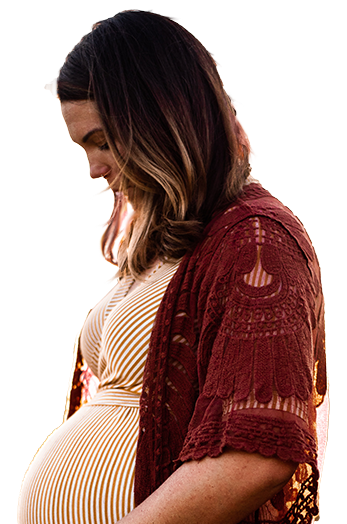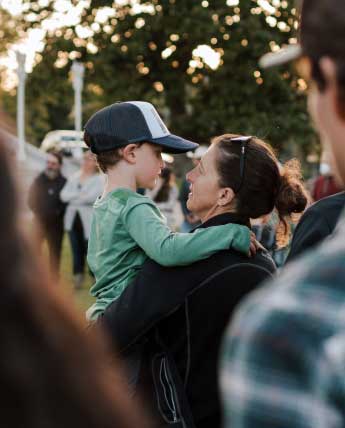Types of
donation
So many ways to
save a life
Donation is a profound and impactful gift. Most organ and tissue donation occurs after death and leaves a life-changing legacy. For some, living donation and birth tissue donation are also possible.
Birth tissue
Tennessee Donor Services offers expectant mothers the opportunity to donate their birth tissue, which can be used to help dozens of others! Birth tissue donation is safe for mother and baby, does not affect the mother’s labor or baby’s delivery and repurpose tissue that would typically be discarded to heal others.

Organ donation
When donation occurs after death, one donor can save as many as eight lives with the gifts of their heart, lungs, liver, kidneys, pancreas and intestines. While this is the most common type of organ donation, less than one percent of all deaths occur in a manner that makes it possible.
Tissue donation
One tissue donor can improve the lives of 75 or more people with their gifts. Donated tissue changes lives—it is used to heal wounds, restore mobility and improve recipients’ quality of life. Heart valves may be transplanted into children and adults to remedy congenital heart defects. Skin and bone donations are used to treat burns and reconstruct disfiguring wounds, often in our nation’s military men and women. Corneas restore sight to those experiencing blindness.

Eye bank
Eye tissue, primarily corneal tissue, can also be donated! These tissues are used to restore sight and reconstruct recipient eye structures. Additionally, the tissue may be used for research to prevent, treat and cure cataracts, glaucoma and diseases of the retina.
Tennessee Donor Services recovers, processes, and distributes donor eye tissue and provides additional ocular services through Sierra Donor Services Eye Bank. Together, we enhance or restore sight to more than 1000 people each year.

One organ donor can save as many as eight lives. One tissue donor can improve the lives of 75 or more people.

be the gift
On average, 20 people die every day waiting for an organ transplant. One day, you or someone you love may need an organ or tissue transplant. You can help end the waitlist now.

Living donation
Living donors make an immediate impact by sparing waiting patients long, uncertain time on the national transplant waitlist. Relatives, friends, acquaintances, and even, anonymous altruistic donors may give the gift of life. Living donors can donate a kidney or a portion of other organs, such as the liver.
